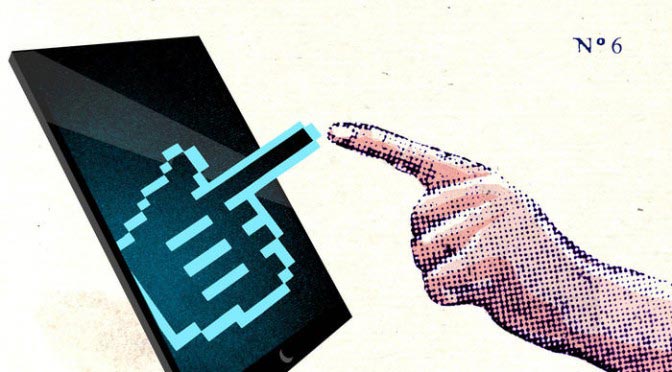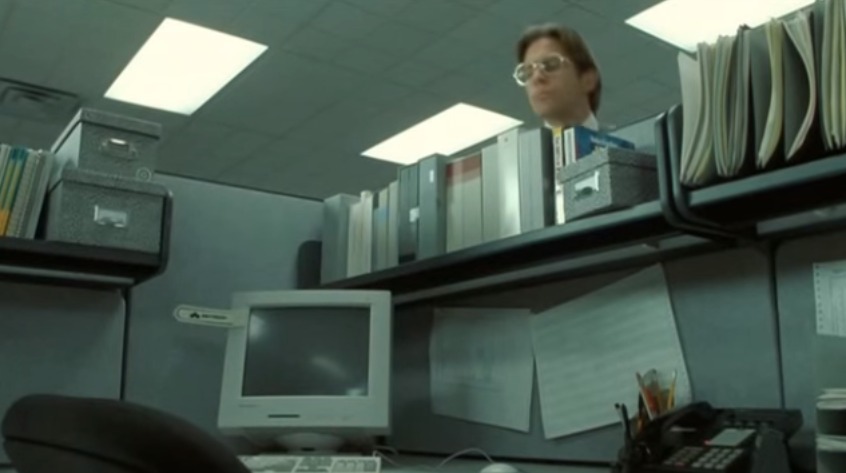Our Computers, Ourselves Review

We review Our Computers, Ourselves and recap Invisbilia’s first season.
Invisibilia wrapped up their first season with a fantastic episode on our relationship with computers and the Internet.
The sixth episode, Our Computers, Ourselves, starts 1991 in California with a gentlemen who was nabbed by a traffic camera. It’s a story that made national headlines.
The man, who received a speeding ticket, mailed a picture of cash to pay the fine. He received another letter from the county, this one was a photocopy of handcuffs.
I remembered the story as soon as they started talking about it. At that time, computers were for word processing or games. Growing up in small town East Tennessee, the Internet was synonymous with AOL and dialup.
Using computers for traffic enforcement was such a foreign idea back then. For my parents and their generation, it was “Big Brother” watching the average joe. It was invasion of privacy. Americans wouldn’t stand for it.
It’s everywhere now.
Lulu Miller and Alix Spiegel hit this topic out of the park, covering how computers have changed us.
They pitch the positives first: saving lives with speeding cameras in California and improving memory and conversations with wearable tech.
For the wearable tech, they talk with Thad Starner. A man who had wearable tech…in 1993. His homemade devices allowed him to store info he’d normally forget. That resulted, as he put it, in deeper conversations and connections with other people.
The segment touches on some privacy concerns associated with wearable technology, but it’s one person at the end of the segment. Those concerns are essentially drowned out by Starner and other’s enthuasim.
While they didn’t go further into this merging of man and machine, it’s worth mentioning Ray Kurzweil believes man and machine could merge completely by 2045, creating an Artificial Super Intelligence singularity. There’s a great (really long) post on that on Waitbutwhy.com.
The second half switches gears and touches on the negatives.
The first segment, “How To Grow A Bully” shows how the Internet can help create a bully.
Pete, a New York commuter, posted pictures of people being rude on the trains. What turned into a cathartic public shaming of rude behaviour ended up being catty and mean.
When Pete couldn’t find someone behaving bad, he posted pictures of other things. A girl with acne marks. Someone with bad hair. Someone dressed poorly. All came with mean captions to get more interactions on his social accounts.
Lulu brings in an expert in social sciences to explain why there was a shift in his attitude. And it’s fascinating. The basic idea being people do things they wouldn’t normally when they’re anonymous.
That’s nothing new, but they go deeper in how these electronic boxes can influence our emotions. They touch on those who use the web as an outlet. But those emotions, even when expressed via text, can spread.
The last episode of Invisibilia ends with a lullaby and some personal commentary. It was nice thought, but probably not the strongest note to end the episode.
Our Computers, Ourselves is one of the better episodes and a solid way to end their first season.
Invisibilia Season One Recap
If you’ve read previous Invisibilia reviews, then you know where this is going. There were three episodes I’d recommend to anyone looking for a new podcast.
The first episode, How To Be Batman, and Our Computers, Ourselves were well crafted stories that blended entertainment with information perfectly. They stand out over their peers in that aspect.
While those three episodes were the stand outs, it doesn’t mean the remaining episodes aren’t any good. They’re still informative. They’re still entertaining. They just miss the mark.
The crown jewel of the season is How To Be Batman. How was that different than the others?
The other five episodes contained one idea with four stories to illustrated various topics within the overarching idea. Each topic had a story associated with it to highlight that specific point.
How to be Batman had one story that incorporated the four topics. Topics, ideas and other notes of interest were referenced throughout the episode. It created a richer experience.
Overall, Invisibilia, despite how short the season was, is a solid podcast that should be added to your list of shows.




